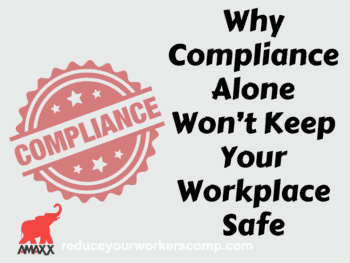For workers who spend the days behind the wheel, it would make sense to assume that the thin strip of nylon or polyester that keeps them pinned to their seats in case of a collision is there to keep them safe from harm.
But a Saskatoon Court of Queen's Bench judge recently ruled that buckling up may actually be more dangerous for bus drivers, according to a report from the Canadian OH&S News. In an Oct. 20 decision, Justice Grant Currie overturned Saskatoon bus driver Dean Christianson's traffic court conviction for failing to wear his seatbelt. (WCxKit)
"His experiences, and those of others that had come to his attention in the course of working in his industry, gave him reason to believe that his safety may be compromised by wearing a seatbelt," Justice Currie wrote. Christianson believed that if passengers on the bus assaulted him, being buckled in would make him less able to defend himself.
In his initial traffic safety court trial, Christianson called violence against transit operators a "growing, nationwide epidemic," noting that he been threatened by three people riding on the bus at the time he was pulled over.
"As someone who has been spit on, I discovered that you do not know who is going to grab your steering wheel while you're driving or sucker punch you, or stab you, or spit on you. You have no idea who it's coming from," he said. "Some of the drivers have been sucker punched while they are driving and took repetitive blows while trying to get their seatbelt off so they can defend themselves."
Under Saskatchewan's Traffic Safety Act, a bus driver is not required to wear a seatbelt if they have reason to feel it may put them at risk of injury.
The Crown had argued that the exemption only applied when there was a specific risk of injury, but Justice Currie ruled that the regulation could also be applied to a driver who "may be continuously exposed to a compromise of his or her safety on a random basis." (WCxKit)
A Saskatoon civic policy states that all public employees must be buckled in whenever they're behind the wheel of a city vehicle, but the transit union is hoping this ruling will help change that policy, first introduced three years ago.
Author Robert Elliott, executive vice president, Amaxx Risk Solutions, Inc. has worked successfully for 20 years with many industries to reduce Workers Compensation costs, including airlines, healthcare, printing/publishing, pharmaceuticals, retail, hospitality and manufacturing. See www.LowerWC.com for more information. Contact: Info@ReduceYourWorkersComp.com.
WORKERS COMPENSATION MANAGEMENT GUIDEBOOK: www.WCManual.com
WORK COMP CALCULATOR: www.LowerWC.com/calculator.php
MODIFIED DUTY CALCULATOR: www.LowerWC.com/transitional-duty-cost-calculator.php
SUBSCRIBE: Workers Comp Resource Center Newsletter
Do not use this information without independent verification. All state laws vary. You should consult with your insurance broker or agent about workers comp issues.
©2011 Amaxx Risk Solutions, Inc. All rights reserved under International Copyright Law. If you would like permission to reprint this material, contact


























